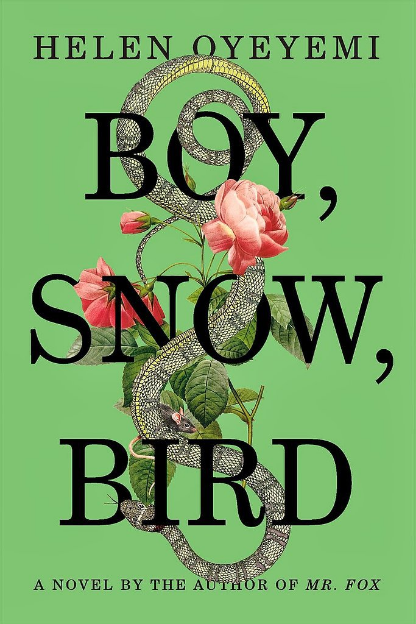I decided to try something new this reading list and post reviews as I finish the books instead of posting them all at once at the end of the season. I just finished reading Boy, Snow, Bird earlier this week, and finished writing up my review last night. Oh! and please note I tweaked my Spring Reading List. Check it out here :)
*************
Boy, Snow, Bird - A Review
*Spoiler alert! It will be impossible for me to talk about this book without giving several things away. You have been warned.
This book is weird. I didn't like it, but I didn't not like it either. I wanted to know what happened next, but it was a kind of morbid fascination, rather than a deep investment in the story (like why people still watch Law and Order: SVU even though Stabler's gone). I wasn't rooting for any of the characters, but I wasn't waiting for them to fail either. I keep thinking back on all the books I've read, trying to liken this experience to another, but I can't think of a single one.
The story centers around Boy Novak, who runs away from her abusive father dubbed "the rat catcher" in New York City, to a tiny little town where everybody knows your name up in Massachusetts. Once there she meets a widower, with a child, marries said widower, has a child with him, and then casts his original child out of their home to live with her aunt. She and her stepdaughter eventually reconcile in the end. That is the story in a nutshell told on the most basic of basic levels.
During all of that, Oyeyemi weaves a tale that is just enough Snow White for you to notice (with Boy being the wicked stepmother), but not so much that it is overdone or irritating. The story takes its most interesting turn when the concept of passing is introduced. Unknowingly Boy marries into a family of Black people that has been passing for years bordering on generations, and the the only reason she finds out is because she gives birth to a daughter with unmistakably ethnic features. Beauty as it relates to Blackness becomes a very interesting focal point for a large chunk of the book, and while I believe Oyeyemi could have gone further with it, it was still fascinating all the same.
There is also a preoccupation with mirrors that is highly disturbing but also very intriguing. Boy sees different versions of herself in mirrors, and Bird, her daughter, occasionally doesn't see herself in mirrors at all. I was puzzled every time the issue came up, and kept hoping it would be explained or further explored later on in the book. As it so happened, there was an explanation, but I found it highly problematic.
In the last 20 pages of the book, literally, we find out that "the rat-catcher," Boy's father, was actually born a woman, was raped when she conceived Boy, after which when she looked in the mirror she saw a man, and from then on assumed that identity. It was hard to tell if Oyeyemi was saying that Boy's father was trans, or was suffering from an identity disorder, but it seemed to lean toward him being trans. Aside from this part of the book being extremely rushed, it felt to me like Oyeyemi was saying that Boy's father being transgender was some kind of mental illness that was passed down to Boy and then Bird, which is pretty messed up. I could be totally wrong about where Oyeyemi was going with that spin-off of the stories, but that's how it felt to me.
If after reading this you still decide to read Boy, Snow, Bird, and I'm not saying you shouldn't, but if you do, don't read it alone. This is a book you need to talk about with someone, and debrief once it's done. Trust me.
